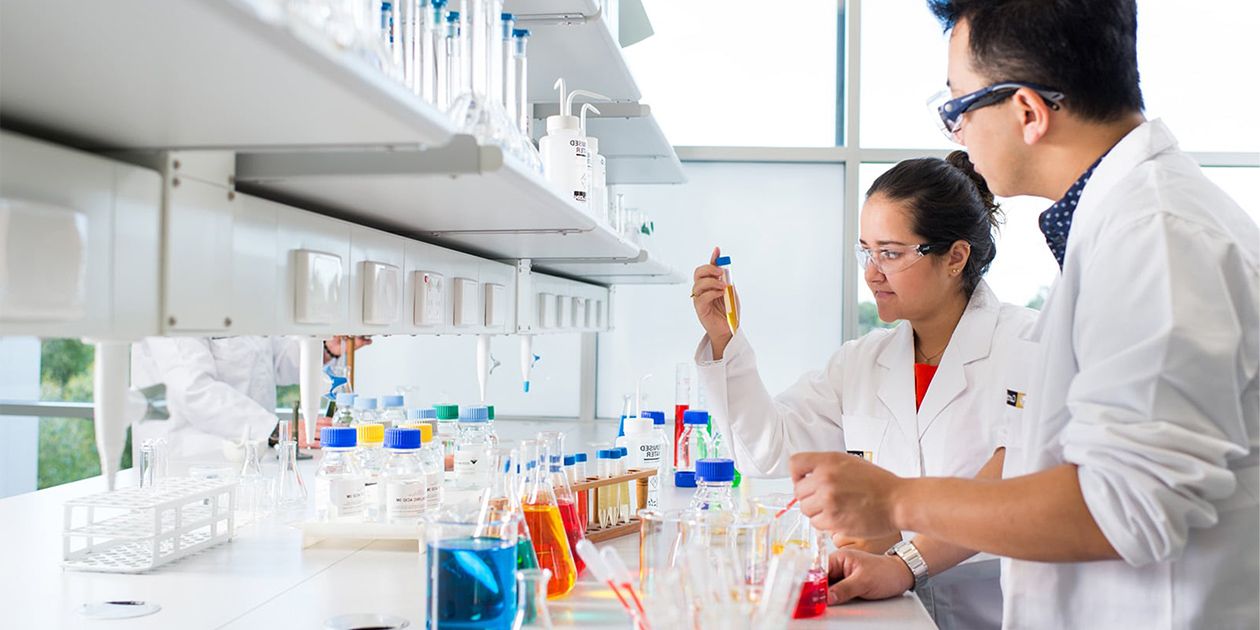Overview
Overview
Biochemists study the molecular structures and processes that form the foundation for living matter.
In this major, you will study the core principles of chemistry, molecular structure and chemical reactivity, and how they can be applied to biological molecules.
You will study second- and third-year units in biological, medicinal and natural product chemistry; and complementary units in cell biology, molecular biology and molecular genetics.
You’ll investigate molecular systems that regulate cell growth, including signalling and defence, and related metabolic pathways.
You’ll also study molecular recognition and its applications in biosensors, drug design and optimisation, and in monitoring the effects that exogenous compounds can have on living systems.
You can specialise in either the Chemistry or Environment streams:
Chemistry
In this stream you’ll explore how an understanding of the molecular world can influence areas such as bionanotechnology, IT and new biocompatible materials.
Depending on your interests, you can learn to use sophisticated scientific instrumentation to solve complex, real-world analytical problems, or you can learn how to rationally design and synthesise new molecules for a variety of purposes.
Environment
In this stream you’ll gain first-hand knowledge of how biochemistry and molecular biology are implemented in an environmental setting.
You’ll gain theoretical knowledge and practical skills in various environmental applications of biochemistry. This includes detecting the biochemical signals of pollution, and conducting genetic sequencing of soil microbial systems to assess the impact of human activity.
This major sits within the Bachelor of Science (Science) degree.
See our handbook for more course information.
What jobs can the Biochemistry course lead to?
Careers
- Biochemist
- Biotechnologist
- Forensic scientist
- Medicinal scientist
Industries
- Agriculture
- Biotechnology
- Healthcare
Further study
- Bachelor of Science (Honours)
- Master of Science (Water Quality and Treatment)
- Master of Teaching
- Master of Philosophy
- Doctor of Philosophy
- Biotechnologist
- Environmental Scientist
What you'll learn
- apply biochemistry knowledge, principles and concepts
- apply critical, creative and reflective thinking to biochemistry problems
- access, evaluate and synthesise information relating to biochemistry
- effectively communicate biochemistry ideas and concepts
- use a range of technologies to collect and analyse data
- work as responsible, self-directed and motivated learners
- apply internationally accepted scientific conventions, standards and protocols
- demonstrate respect for cultural diversity in professional life
- work safely, effectively and ethically in a multifaceted scientific environment

